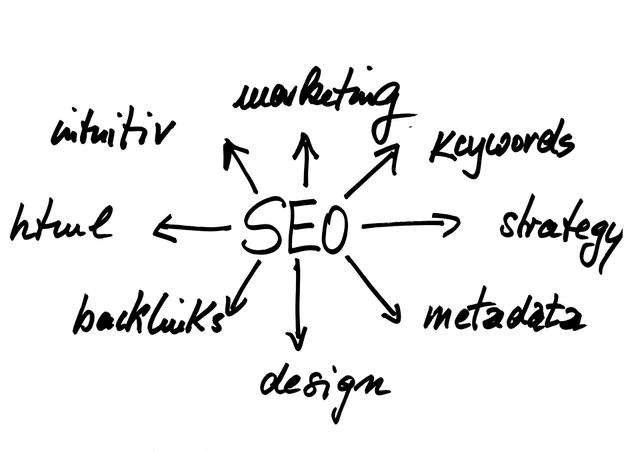Comprehensive SEO audits are essential tools for evaluating a website's online performance and visibility. They analyze technical optimizations, on-page content, content strategy, and link profiles to identify areas for improvement, such as meta tag optimization, site speed enhancement, mobile usability, and content refinement. Keyword research is at the core of successful SEO strategies, helping businesses optimize their sites for better search engine rankings and targeted traffic. Regular audits ensure dynamic keyword strategies aligned with industry trends and user behavior. Technical SEO aspects like site speed, mobile responsiveness, and CMS updates are also crucial for high rankings. Comprehensive SEO audits provide actionable insights and recommendations to enhance visibility, traffic, and online competitiveness in today's digital era.
In today’s digital landscape, a strong online presence is paramount. This article guides you through essential Comprehensive SEO Audits and their role in optimizing your website for search engines. We explore key components such as keyword research, on-page optimization, off-page strategies, technical considerations, and performance analysis. By implementing these best practices, you’ll enhance visibility, drive organic traffic, and stay ahead of the competition. Start your journey to digital success with these powerful SEO recommendations.
Understanding Comprehensive SEO Audits: An Overview

Comprehensive SEO audits are an essential tool for evaluating a website’s online visibility and performance. They involve a meticulous examination of various aspects, from technical and on-page optimizations to content strategy and link profiles. These audits provide a holistic view of a site’s current standing in search engine rankings and offer actionable insights for improvement.
By conducting a comprehensive SEO audit, businesses can uncover hidden issues hindering their website’s success. It helps identify areas where improvements can be made, such as optimizing meta tags, improving site speed, enhancing mobile usability, or refining content to better align with user intent. This process is crucial in staying ahead of algorithm updates and ensuring the website remains competitive in the dynamic digital landscape.
The Role of Keyword Research in SEO Strategy

Comprehensive SEO audits are an essential part of any successful SEO strategy, and keyword research is at its heart. It involves a thorough exploration of potential keywords that users might search for when looking for products or services related to your website’s content. By understanding these keywords, you can optimize your site’s content, structure, and overall user experience to rank higher in search engine results pages (SERPs).
Keyword research helps identify long-tail keywords—specific phrases with lower competition that can drive targeted traffic. It also reveals the intent behind user searches, enabling you to create content that not only satisfies search engines but also meets the needs of your target audience. Regular comprehensive SEO audits ensure your keyword strategy remains dynamic and aligned with industry trends and user behavior.
On-Page Optimization Techniques for Enhanced Visibility

Comprehensive SEO audits are a powerful tool for enhancing website visibility. By meticulously examining every aspect of your site, from content to structure, these audits identify areas where on-page optimization can be improved. This involves optimizing essential elements like meta titles, headings, and descriptions to ensure they are not only informative but also include targeted keywords. Effective on-page optimization ensures that search engines can easily understand and index your web pages, leading to better rankings over time.
Additionally, these audits recommend implementing structured data markup, which provides search engines with valuable context about your content. This could include rich snippets, making your listings more visually appealing in search results. Further, optimizing images by adding alt tags and ensuring they load quickly contributes to a positive user experience. Regularly updating content to keep it fresh and relevant is another vital strategy, as search engines favor dynamic websites that offer the most up-to-date information.
Off-Page SEO: Building High-Quality Backlinks

Off-page SEO involves strategies outside your website to improve its search rankings. One critical aspect is building high-quality backlinks, which act as votes of confidence from other websites. These links signal to search engines that your content is valuable and trustworthy. When conducting a comprehensive SEO audit, carefully analyze the backlink profile of your site. Identify reputable and relevant sources where you can acquire backlinks naturally. This might include industry-related blogs, forums, or high-authority websites in your niche.
Engaging in guest blogging, creating shareable infographics, or offering valuable resources that others will link to are effective ways to earn these links. Remember, the quality of backlinks matters more than quantity. Focus on building relationships with influential sites in your industry to ensure the backlinks you acquire enhance your website’s authority and visibility in search results.
Technical SEO Considerations for Seamless User Experience

Technical SEO plays a pivotal role in ensuring your website offers a seamless user experience, which is crucial for high search engine rankings. A comprehensive SEO audit should evaluate site speed and performance, implementing optimizations to reduce loading times. Fast-loading pages not only improve user satisfaction but also signal to search engines that your site is reliable and worth indexing thoroughly.
Additionally, ensuring mobile responsiveness is essential as more users access the internet through their smartphones. A responsive design adapts content and layout to different screen sizes, providing a consistent experience across devices. Search engines favor mobile-friendly websites, considering them more accessible and user-centric. Regularly updating content management systems (CMS) and plugins also contributes to better security and stability, enhancing overall website performance.
Analyzing Website Performance with Advanced Tools

In today’s digital era, Comprehensive SEO Audits are an indispensable tool for analyzing website performance. These advanced tools provide insights into every aspect of a site’s visibility and traffic, from keyword rankings to user experience metrics. By leveraging such audits, businesses can uncover hidden issues that hinder search engine optimization (SEO) efforts and identify areas with significant improvement potential.
Through comprehensive analysis, these tools enable professionals to navigate the complex landscape of online competition effectively. They help in understanding not only where a website stands currently but also offer actionable recommendations to enhance its ranking on search engines like Google. By prioritizing these insights, folks can foster sustainable growth and ensure their websites cut through the hustle and bustle of the digital world.
Continuous Improvement: Regular SEO Audit Best Practices

Regularly conducting comprehensive SEO audits is an integral part of staying ahead in the digital landscape. These audits should cover every aspect of your website, from technical optimizations to content performance and keyword strategies. By setting up a consistent audit schedule, you enable continuous improvement and ensure that your site remains competitive.
Best practices include monthly or quarterly reviews, depending on the site’s complexity and industry dynamics. During these audits, scrutinize page load speeds, mobile-friendliness, schema markup implementation, and internal linking structures. Also, analyze keyword rankings, organic traffic sources, and user engagement metrics to make informed decisions about content updates and strategy adjustments.
